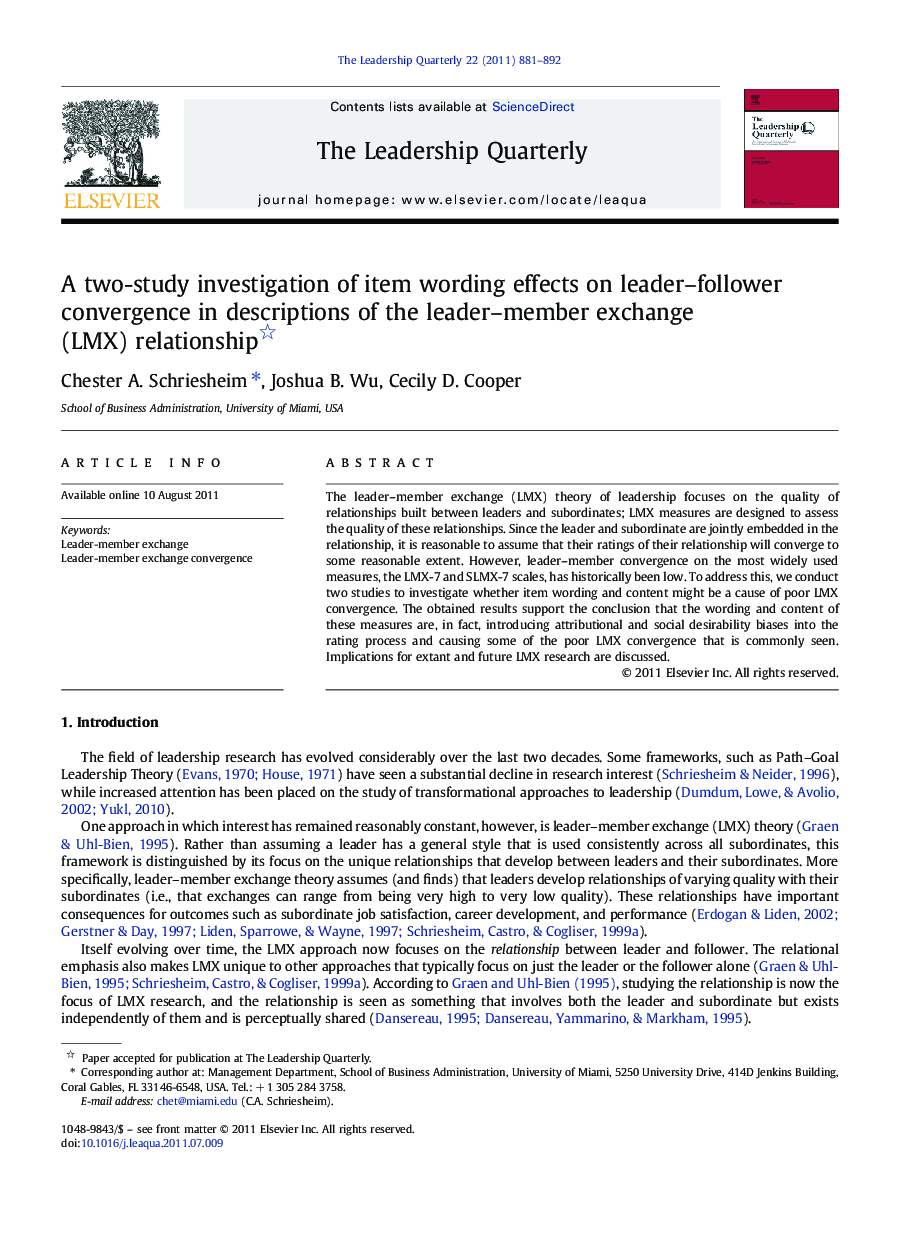| Article ID | Journal | Published Year | Pages | File Type |
|---|---|---|---|---|
| 888127 | The Leadership Quarterly | 2011 | 12 Pages |
The leader–member exchange (LMX) theory of leadership focuses on the quality of relationships built between leaders and subordinates; LMX measures are designed to assess the quality of these relationships. Since the leader and subordinate are jointly embedded in the relationship, it is reasonable to assume that their ratings of their relationship will converge to some reasonable extent. However, leader–member convergence on the most widely used measures, the LMX-7 and SLMX-7 scales, has historically been low. To address this, we conduct two studies to investigate whether item wording and content might be a cause of poor LMX convergence. The obtained results support the conclusion that the wording and content of these measures are, in fact, introducing attributional and social desirability biases into the rating process and causing some of the poor LMX convergence that is commonly seen. Implications for extant and future LMX research are discussed.
